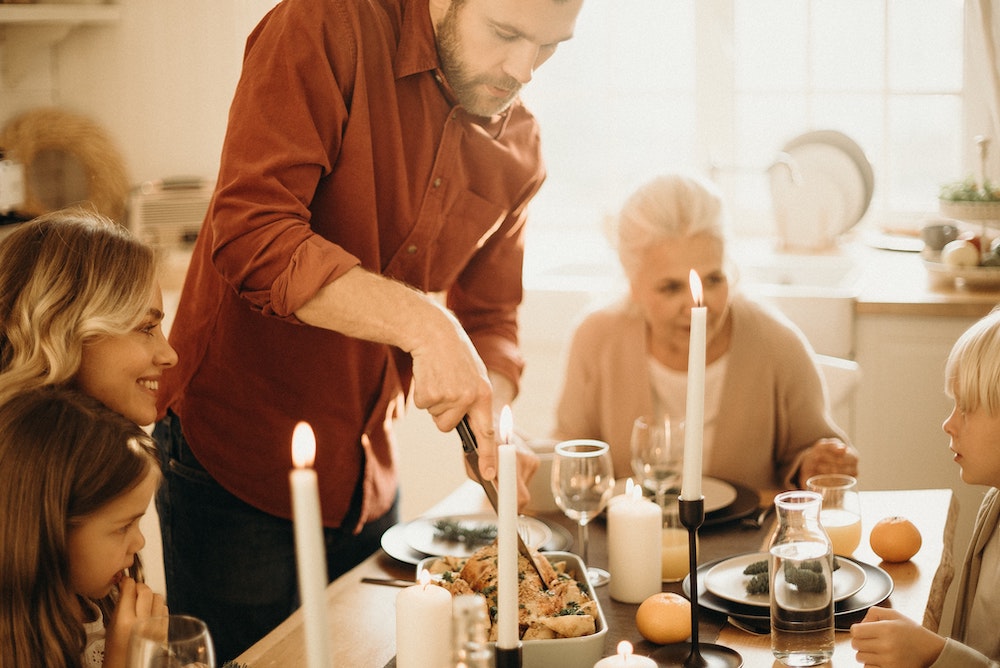10 tips from a health and wellness expert to make the most of the holidays during COVID-19

People are craving a little holiday joy after many months of navigating the upside-down world that COVID-19 has created. Looking forward to the holidays and positive emotions many experience around this time are important, but it may be time to re-envision what our holidays are going to look like. Here are some tips to make the most of an unusual holiday season for you and your loved ones from Binghamton University Health and Wellness Studies Lecturer Jennifer Wegmann.
Start new traditions
This holiday season can be a time to start new traditions with your family. The beauty of this is you can create what the new traditions look like. Remember it’s new, so it is not going to look or feel like what you have done in the past — but that is okay.
Don’t feel confined by old rules and standards
If you are searching for holiday joy, do yourself a favor and don’t prescribe to social standards. For example, there seems to be a socially acceptable rule about outside decorations. If you turn your lights on before Thanksgiving, you get judged so hard! If turning on your lights fills you with happiness, by all means, turn them on.
Focus on your community
Do you have resources you can share with your community? Giving back and connecting with your community helps foster connection, and tapping into your altruistic self helps give your life purpose and meaning.
Embrace the quiet time
Approach this season as an opportunity to enjoy a stress-free, anxiety-free holiday. The dinners, the parties, the travel, the presents — all of these can be wonderful, but at the same time very stressful. Replacing them with quiet time and space with those closest to you can give you time to be present in the moment, and to appreciate what remains versus what has been lost.
Find new meaning in the holidays
COVID-19 has given us more time and space than most of us have had in our lives. We can use this as an opportunity to learn more about ourselves, our values and our beliefs. Developing a better understanding of ourselves allows us to find what is most meaningful in our lives. We all need to challenge ourselves to find the meaning behind the holiday.
Discover what you’re grateful for
A great exercise we can all do is to take a little time in the next few weeks to reflect upon what we are truly and genuinely thankful for. Being grateful will help us see Thanksgiving through a different lens. I encourage everyone to find a way to let people in their lives know you are grateful for them and why. There are so many benefits to practicing gratitude. It reduces stress and anxiety, and helps you authentically connect with others.
Stay digitally connected
If you cannot travel to see and celebrate with family, remember you can still connect from a distance. Although it’s not exactly the same, you can appreciate that most of us have the technology available that affords us the opportunity to do so. Instead of letting anger and frustration take over, give yourself permission to live in the moment and be present when connecting with others — even over Zoom.
Cancel plans in a cordial way
Family and friends might be upset if you cancel holiday plans. My best advice for anyone searching for the words to say to friends and family is: “I understand your feelings are valid, but let’s try to make the most of our uncontrollable circumstances.” Lead by example — model being present, model making the best.
Don’t feel bad about practicing self-care
We need to acknowledge that we deserve to take care of ourselves and give ourselves permission to do so. I so often see guilt undermine self-care. We should never feel like we need to explain, rationalize or apologize for taking care of ourselves.
Have a positive mindset
It is important to validate how all the changes COVID-19 has made in our lives makes us feel. It’s okay to be angry, anxious and disappointed. However, how we manage and frame these emotions matters; this really comes down to perspective and mindset. We can all focus on what has been taken away or what we have lost — for example, big family holiday gatherings. But we can also focus on what remains or what new opportunities lie ahead for us.
